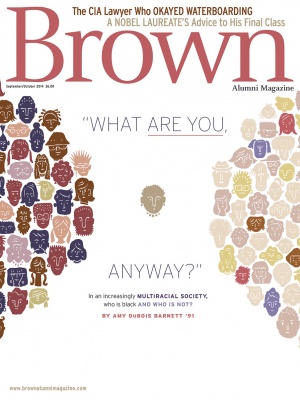John Whipple Potter Jenks, class of 1838, was my great-great-great-grandfather (“Ghost Story,” Finally, July/August). Jenks taught students needing his agricultural zoology and natural history courses for graduation. Not a rich man, he devoted most of his salary toward his worldwide collecting trips, including shipping specimens to the specimen taxidermy shop he kept in Middleboro, Massachusetts, for more than twenty years.
Brown acknowledged his value by establishing the Jenks Museum in 1880. According to his autopsy, he was a hale and hearty seventy-five when he died on the steps of University Hall in 1894, not from arsenic, as your article surmises, but from a heart attack. Small but muscular, Jenks was praised posthumously in a 1910 Atlantic Monthly article for his delivery of turtle eggs to Louis Agassiz, the great Harvard naturalist and Jenks’s contemporary.
To me Jenks is not a ghost at all, but a fascinating addition to Brown lore. I have written the first of two books, based on his handwritten journals, detailing a fifty-day trip from Providence to Lake Okeechobee, that is both historical in scope and a real murder story set during Civil War reconstruction in the 1870s South, which he observed first hand.
Pete Barstow ’57
North Brookfield, Mass.
[email protected]
Jenks the Naturalist
September 4th, 2014





